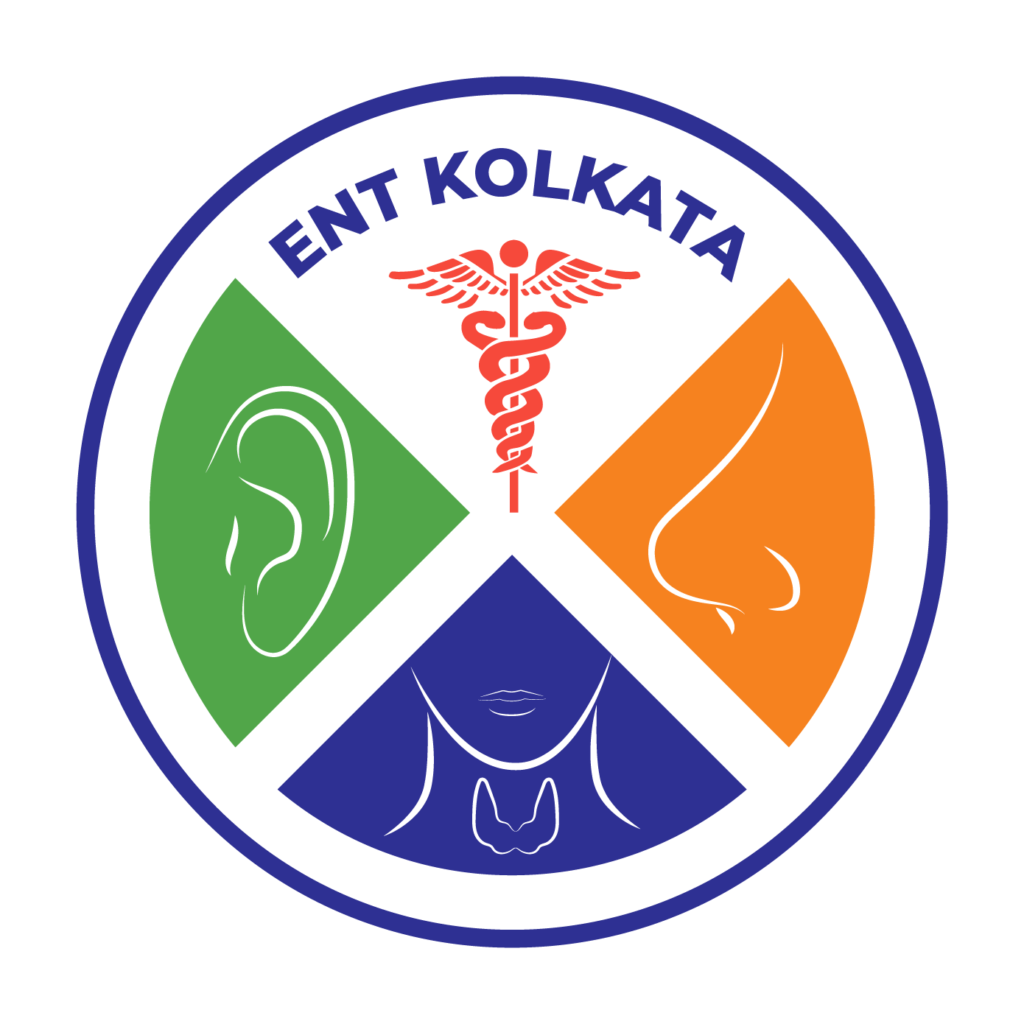Sinusitis, commonly known as a sinus infection, is one of the most prevalent health conditions affecting millions of people. The condition involves inflammation of the sinuses—air-filled cavities in the facial bones surrounding the nose. For residents of Kolkata, where humidity, pollution, and seasonal changes create unique respiratory challenges, understanding sinusitis is particularly important. This comprehensive guide from an ENT Doctor in Kolkata perspective will help you understand this common condition.
What Are Sinuses and What Do They Do?
The sinuses are hollow spaces located in the bones of the face and skull. There are four pairs of sinuses:
Maxillary Sinuses Located in the cheekbones, these are the largest sinuses and most commonly affected by infections.
Frontal Sinuses Located in the forehead above the eyebrows.
Ethmoid Sinuses Located between the eyes, consisting of small air cells.
Sphenoid Sinuses Located deep in the skull behind the nose.
Healthy sinuses are lined with mucous membranes that produce mucus, which drains into the nasal passages. This system helps humidify air, trap particles, and protect against infections. When sinuses become inflamed, drainage is impaired, leading to the symptoms of sinusitis. An ENT Specialist in Kolkata can assess sinus health through examination and imaging.
Types of Sinusitis
Acute Sinusitis
Acute sinusitis develops suddenly, often following a cold or respiratory infection, and typically lasts less than four weeks.
Symptoms include:
- Facial pain and pressure
- Nasal congestion and blockage
- Thick nasal discharge
- Reduced sense of smell
- Cough, particularly at night
- Fatigue
- Fever in some cases
- Dental pain (upper teeth)
- Bad breath
Subacute Sinusitis
This form lasts between four and twelve weeks and represents a transition between acute and chronic forms.
Chronic Sinusitis
Chronic sinusitis persists for twelve weeks or longer despite treatment attempts. Symptoms may be less intense but more persistent:
- Ongoing nasal congestion
- Facial pressure or fullness
- Reduced sense of smell and taste
- Postnasal drip
- Fatigue
- Throat clearing
- Ear fullness
Recurrent Sinusitis
This involves multiple episodes of acute sinusitis throughout the year, with complete resolution between episodes.
An ENT Clinic in Kolkata can help determine which type of sinusitis you may be experiencing.
Causes and Contributing Factors
Infectious Causes
- Viral infections (most common cause of acute sinusitis)
- Bacterial infections (may follow viral infections)
- Fungal infections (particularly in humid climates like Kolkata)
Anatomical Factors
- Deviated nasal septum
- Nasal polyps
- Enlarged turbinates
- Narrow sinus openings
Environmental Factors Kolkata-specific considerations:
- High humidity promoting mold and fungal growth
- Air pollution irritating nasal passages
- Seasonal pollen variations
- Dust and particulate matter
Allergic Factors
- Allergic rhinitis
- Environmental allergies
- Sensitivity to mold, dust, or pollen
Other Contributing Factors
- Weakened immune system
- Smoking or secondhand smoke exposure
- Dental infections
- Swimming, particularly in polluted water
- Air travel with existing congestion
An ENT Doctor in Kolkata can help identify which factors may be contributing to your sinus problems.
Recognizing Sinusitis Symptoms
Primary Symptoms
The hallmark symptoms that suggest sinusitis include:
- Facial pain or pressure that worsens when bending forward
- Nasal congestion affecting one or both sides
- Thick, discolored nasal discharge
- Reduced ability to smell
Associated Symptoms
Additional symptoms may include:
- Headache
- Ear pressure or fullness
- Dental discomfort
- Fatigue and malaise
- Cough, particularly at night
- Sore throat from postnasal drip
- Bad breath
Location-Specific Pain
Different sinuses cause pain in different areas:
- Maxillary sinusitis: cheek pain, dental discomfort
- Frontal sinusitis: forehead pain
- Ethmoid sinusitis: pain between and behind eyes
- Sphenoid sinusitis: deep head pain, pain at top of head
When to Consult an ENT Specialist
Consider evaluation at an ENT Clinic in Kolkata when:
Timing and Duration
- Symptoms persist beyond ten days without improvement
- Symptoms initially improve then worsen again
- Multiple episodes occur within a year
- Chronic symptoms lasting more than twelve weeks
Severity
- Severe facial pain or headache
- High fever with sinus symptoms
- Swelling or redness around eyes
- Vision changes
- Symptoms not responding to initial treatment
Complications Concerns
- Worsening symptoms despite treatment
- Symptoms affecting daily activities significantly
- Recurrent episodes requiring frequent treatment
- Associated ear or dental problems
An ENT specialist in Kolkata can provide comprehensive evaluation when these situations arise.
ENT Evaluation Process
Clinical Assessment
When you visit an ENT doctor in Kolkata for sinus concerns:
History Taking
- Symptom characteristics and duration
- Previous sinus problems and treatments
- Allergy history
- Environmental exposures
- Impact on quality of life
Physical Examination
- Nasal endoscopy to visualize nasal passages and sinus openings
- Assessment of nasal mucosa
- Evaluation of nasal septum and turbinates
- Examination of throat and ears
Diagnostic Studies
When indicated, your ENT specialist in Kolkata may recommend:
- CT scan of sinuses for detailed anatomical assessment
- Allergy testing to identify triggers
- Nasal cultures in specific situations
- Additional tests based on individual presentation
Management Approaches
Treatment depends on the type, cause, and severity of sinusitis:
Medical Management
For Acute Sinusitis:
- Saline nasal irrigation
- Nasal corticosteroid sprays
- Decongestants for short-term relief
- Pain management
- Appropriate antimicrobial therapy when bacterial infection is confirmed
For Chronic Sinusitis:
- Long-term intranasal corticosteroids
- Regular saline irrigation
- Treatment of underlying allergies
- Management of contributing factors
Adjunctive Measures
- Steam inhalation for comfort
- Adequate hydration
- Rest during acute episodes
- Environmental modifications
When Medical Management is Insufficient
For chronic sinusitis not responding adequately to medical treatment, your ENT Surgeon in Kolkata may discuss whether interventions to improve sinus drainage could benefit your specific situation. These decisions are made on an individual basis after thorough evaluation.
Self-Care and Prevention
Daily Sinus Care
- Regular saline nasal irrigation, especially during high pollution days in Kolkata
- Adequate hydration
- Using a humidifier during dry seasons
- Avoiding known allergens
Environmental Measures
- Air purifiers during high pollution periods
- Regular cleaning to reduce dust and mold
- Avoiding cigarette smoke
- Managing indoor humidity levels
General Health Practices
- Hand hygiene to prevent viral infections
- Managing allergies effectively
- Staying hydrated
- Getting adequate rest
Kolkata-Specific Considerations
- Extra sinus care during monsoon season
- Protection during high pollution days
- Awareness of seasonal allergen patterns
- Regular cleaning of air conditioning filters
Living with Chronic Sinusitis
For those with ongoing sinus issues:
Long-term Management
- Regular follow-up with your ENT doctor in Kolkata
- Consistent use of prescribed treatments
- Identifying and avoiding triggers
- Maintaining sinus hygiene practices
Quality of Life
- Understanding that management is ongoing
- Recognizing early warning signs of flares
- Having a plan for acute worsening
- Communicating with your healthcare provider
Conclusion
Sinusitis is a common condition that can significantly impact daily life, particularly in Kolkata’s challenging environmental conditions. Understanding the different types, recognizing symptoms, and knowing when to seek professional care helps you manage this condition effectively.
If you experience persistent nasal congestion, facial pain, or recurrent sinus symptoms, evaluation by an ENT Specialist in Kolkata can help identify the underlying cause and develop an appropriate management plan for your individual situation.
Remember, this information is educational and not a substitute for doctor’s advice. For sinus concerns, consult a qualified ENT doctor.
